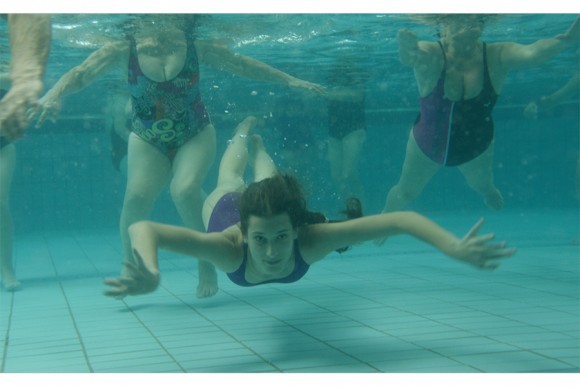The film, which received a Special Mention in the 1-2 Competition for first and second features at the 32nd Warsaw Film Festival last week, had previously received the FEDEORA critics award for Best European Film at the Venice Days. It will next screen in Competition at the ninth Central and Eastern European Film Festival in Luxembourg and at the 29th Tokyo International Film Festival.
PK: Quit Staring at My Plate is a dark tale on what it is to be a woman in a patriarchal society and suffocating environment. Who or what inspired the character of Marijana?
HJ: The subject was not something that I planned. I wanted to make a film on a topic that is close to me – a girl that is finding her way in life. The character of Marijana for me was very interesting, because looking from the outside you don’t get much from her. I wanted to build the character in a way that we gradually get to know her and care for her and I was trying to find things that put her down, like the relationship with her father, which is a complex one: despite all she is the only one that takes care of him.
The scenes around the table are especially striking to watch, because of this complex relationship. How did you create the natural atmosphere?
Zlatko Burić, who plays the father, is a very famous Croatian actor working in Denmark. The girl, Mia Petričević, is not an actress and in the beginning she was intimidated by him. It was great that the producers rented the flat in Šibenik two weeks before we started shooting. The three actors, Zlatko, Mia and the brother, Nikša Butijer, lived together for that time. All three of them became friends, and also during rehearsals we were doing things together, like cooking dinner, which made them very well prepared.
You were shooting in Šibenik, your home town on the Croatian coast, but you depict a reality far away from an attractive tourist destination.
Šibenik is on our coast, but it was one of the towns that wasn’t so well developed after the war and it collapsed in a way. Many people were without jobs and many young people left. It became a town that everyone just wanted to leave. Still, it has a beautiful old centre and cathedral, which were attracting tourists, but there was nothing else to do. For the last couple of years, since Croatia joined the European Union, there is funding and the city is flourishing, but this is only in the centre, when you move a bit further it’s not like that. I still have a sentimental attachment for the town, even if I don’t live in Šibenik anymore.
The film begins with scenes shot underwater and returns at key points to this motif. How did you come up with the idea?
The first scene that I had in my mind were these shots, as the pool is a metaphor for the whole film, in which the main character doesn’t live the life of a young person, but she is suffocated by the ageing bodies. When we shot the final scene, I thought that it will work also very well with the beginning, in terms of rhythm and putting it all together. The scene in the middle, where Marijana goes to the beach and sees her reflection and dives in, becomes a moment of breaking point for her.
The ending of the film is very daring and also visually effective. How did you choose the way to shoot the last scene?
I wanted the final shot to be a special one. I didn’t want it to be a cliché. Marijana turning to look over her shoulder was not planned, but during the shooting I fell in love with Mia’s face. Her face for me was something that I would want to look at for hours. The initial idea was for her to sit and dive in to the water, but then I wanted to see her face for one last time, so I came up with the idea that she looks back. I liked it very much.
Many people were quite angry with the ending, they thought that I pushed her down too much. I usually don’t like generalisations, but I noticed that mostly audiences from Western Europe and the United Sates thought that it is very unrealistic. But I think that people from our part of the world can relate to it more. They tell me that they know people like the characters from the film.




















